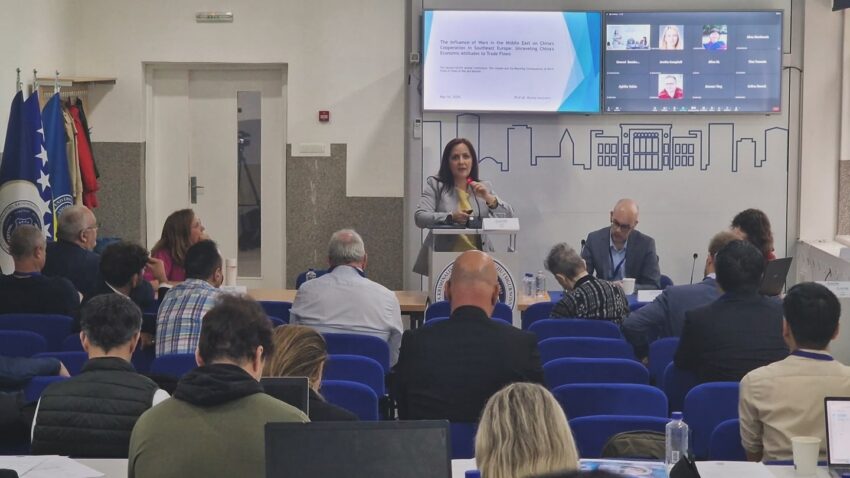Understanding the hidden dimensions of illicit trade in conflict-affected regions is vital for grasping broader global shifts in security, economy, and diplomacy. The conference “The Unseen and Far-Reaching Consequences of Illicit Trade in Times of War and Beyond”, held in Sarajevo, Bosnia and Herzegovina, in May 2024, offered a timely platform to explore these pressing issues.
Organized by COST Action CA2113: Globalization, Illicit Trade, Sustainability and Security under the umbrella of the European Cooperation in Science and Technology (COST), the event brought together experts from across disciplines to examine how war, insecurity, and illicit economies intersect and evolve.
In this context, I had the opportunity to present my lecture titled: “The Influence of Wars in the Middle East on China’s Cooperation in Southeast Europe: Unraveling China’s Economic Attitudes to Trade Flows.” My presentation focused on how conflict-driven disruptions in the Middle East indirectly affect China’s strategic posture and economic engagement with Southeast Europe—especially in relation to trade logistics, energy corridors, and geopolitical alignments.
The discussions that followed were both rich and thought-provoking, highlighting the importance of viewing illicit trade not only through security or legal lenses, but also through the prism of global power competition and shifting economic interests.
I am thankful to the organizers, colleagues, and participants for the engaging exchange of ideas and collaborative spirit. Events like this demonstrate the value of interdisciplinary research in unpacking the complexities of global change, especially in times of uncertainty.
